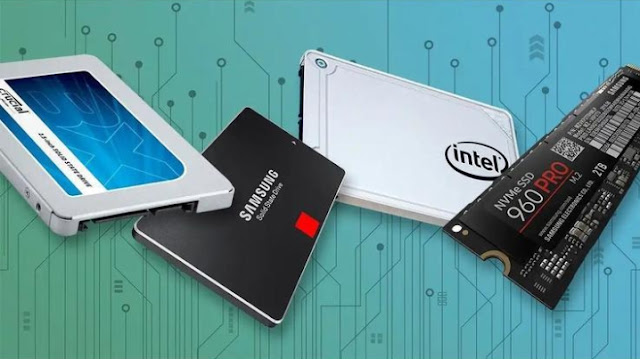What is an SSD and how does it works?
A solid –state drive or an SSD is solid state storage device that uses integrated circuit assemblies to store data persistently. An integrated circuit is a set of electronic circuit on one small flat piece of a semiconductor material, usually silicon. Integrated circuit is also referred to as an IC, a chip, or a microchip. SSD typically uses flash memory, and functioning as external memory or secondary memory. Sometimes SSD is also known as semiconductor storage devices. In starting computers were come only with HHD which stands for Hard Disk Drive. It is a fixed disk electromechanical data storage device that store and retrieve digital data with one or more rigid rapid rotating platter coated with magnetic material. The platters are paired with magnetic heads, usually arranged on a moving actuator arm, which read and write data to the platter surfaces. Data is accessed in a random-access manner, meaning that individual blocks of data can be stored and retrieved in any order.
Making a comparison between SSDs and ordinary (spinning) HDDs is difficult. Traditional HDD benchmarks tend to focus on the performance characteristics that are poor with HDDs, such as rotational latency and seek time. As SSDs do not need to spin or seek to locate data, they may prove vastly superior to HDDs in such tests. Most of the advantages of solid-state drives over traditional hard drives are due to their ability to access data completely electronically instead of electromechanically, resulting in superior transfer speeds and mechanical ruggedness.
Can an SSD suddenly fail?
SSDs have very different failure modes from traditional magnetic hard drives. Because solid-state drives contain no moving parts, they are generally not subject to mechanical failures. Instead, other kinds of failure are possible (for example, incomplete or failed writes due to sudden power failure can be more of a problem than with HDDs, and if a chip fails then all the data on it is lost, a scenario not applicable to magnetic drives). On the whole, however, studies have shown that SSDs are generally highly reliable, and often continue working far beyond the expected lifetime as stated by their manufacturer. SSD drives are designed to sustain multiple overwrites of its entire capacity. Manufacturers warrant their drives for hundreds or even thousands complete overwrites. The Total Bytes Written (TBE) parameter grows with each generation, yet we've seen multiple SSD drives fail significantly sooner than expected.
This is the basic of HDD and SSD , for more information in detail comment down your queries , I will try to solve your queries as soon as possible. Stay updated with getsetupdate , here you will get all the tech related information in very easiest manner. For any kind of suggestion please contact us. our contact us form is available for all your queries, I will come with new information. Till then stay happy.

.jpg)

